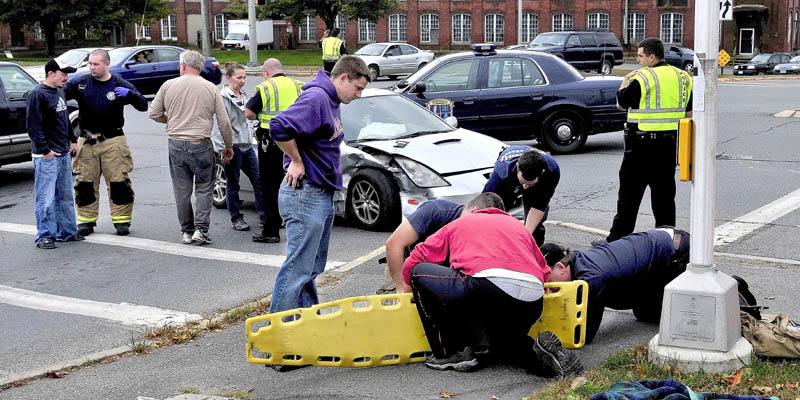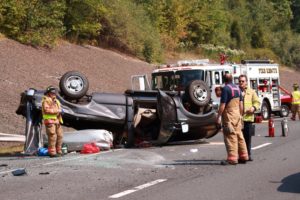
When people are injured or when someone has died in a car accident due to the negligence of another driver, the negligent driver is responsible to compensate the victim or family in a personal injury or wrongful death cause of action.
Liability Insurance
Most often, an insurance company is standing behind the defendant in a lawsuit arising out of an automobile accident. This is both good and bad for the plaintiff. It is good in the sense that the object of liability insurance is to pay for just such injuries and property damage, and settling a claim with the insurance company should be fairly straightforward. On the down side, however, is the fact that insurance companies are financially motivated not to pay claims unless they have to, and in that case to pay as little as they can. To that end, insurance companies use their vast financial resources to employ claims adjusters and attorneys whose job is to limit the company’s exposure to third parties. When dealing with an insurance company on a claim, it is often advisable to retain an experienced trial attorney who can level the playing field between you and the corporate giant.
All states require drivers to carry some form of liability insurance or proof of financial responsibility in the event of an accident. The minimum amounts of liability vary from state to state, but hover around $30,000 for personal injuries and $25,000 for property damage. People wanting to avoid personal liability over the policy limits may pay extra premiums to carry liability up to $100,000 or more. Regardless of these laws, however, as many as ten to twenty percent of drivers on the road do not maintain any form of insurance.
Uninsured and Underinsured Motorist Coverage
The easiest remedy against an uninsured motorist is to carry uninsured motorist (UM) coverage under your own insurance policy. With UM coverage, your own company will pay you when you are injured by an uninsured motorist. Underinsured motorist (UIM) is companion coverage that will compensate you when your injuries exceed the other driver’s liability limits, to the extent the limits on your policy are greater than the negligent driver’s. State laws require insurance companies to offer UM/UIM coverage, but drivers are not necessarily required to carry it. Many drivers decline this coverage to save money on their premiums or because they do not understand the purpose of such coverage, but given the percentage of uninsured drivers on the road, it makes good sense to make UM part of your coverage.
No-Fault Insurance
Some state systems provide that your own insurance company will compensate you anytime you are injured in a covered incident, regardless of who is at fault. However, the policy limits under this system are generally low and only cover certain expenses, leaving you to sue the negligent driver directly to obtain a maximum recovery. When suing the negligent driver, whether under a no-fault system or because the driver was uninsured, you are left with the possibility of obtaining a judgment yet not being able to collect on it because the defendant does not have money or property to satisfy the judgment. Experienced attorneys know the many devices available to collect what they can, but some defendants are simply “judgment-proof” due to their low level of assets.
Contributory Negligence
Contributory negligence is a defense which holds that a plaintiff whose own negligence contributed to an accident or injury cannot recover from a negligent defendant who caused the accident. Most states have abandoned this rule in favor of some form of comparative fault. In states with pure comparative negligence laws, a plaintiff may recover against a negligent defendant for that portion of the defendant’s responsibility, even if the plaintiff was more negligent than the defendant. In other states, the plaintiff can only recover if they were less negligent than the defendant, or when the negligence of the plaintiff is less than or equal to the defendant’s comparative fault.
An experienced trial attorney will investigate each case individually and determine the proper responsible party, whether it is a maker of a defective automobile or component part, a negligent driver or an insurance company. Effective trial lawyers possess the skills to negotiate a favorable settlement with the insurance company, backed by the ability and willingness to take a case to trial where necessary.
Our attorneys have represented plaintiffs in car accident cases across the country for over 20 years. If you are the victim of serious personal injury from a motor vehicle accident, or if a loved one suffered a wrongful death at the hands of a negligent driver or defective automobile, contact our office to consult with an experienced attorney.

